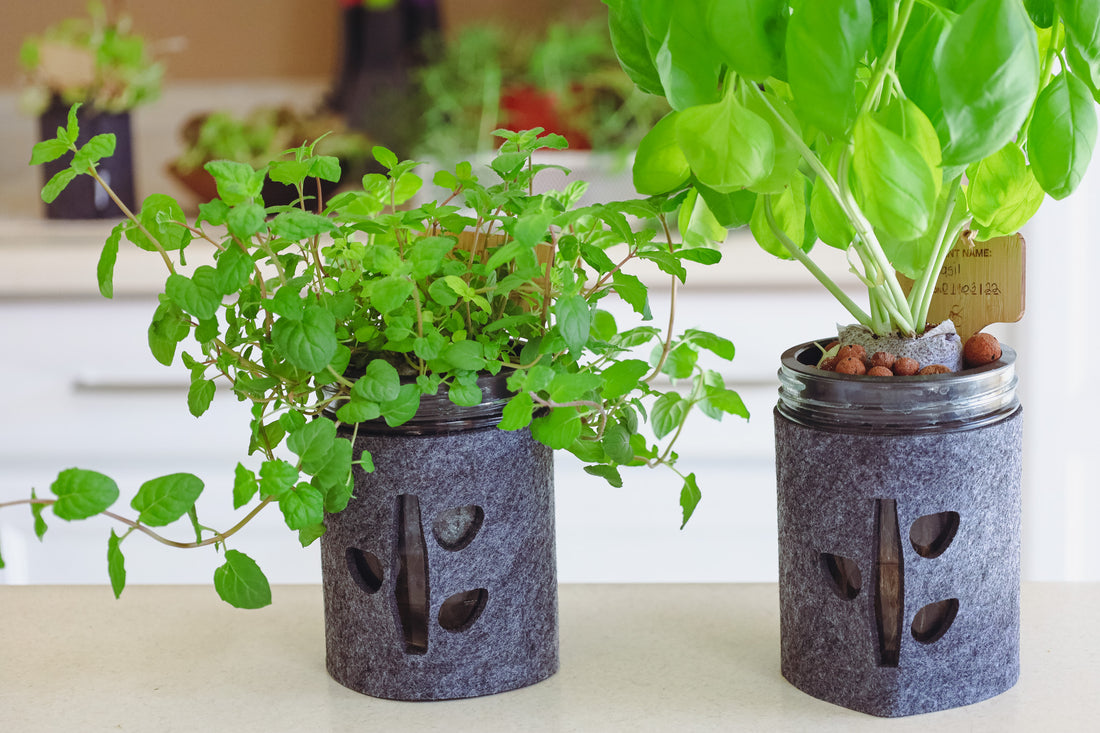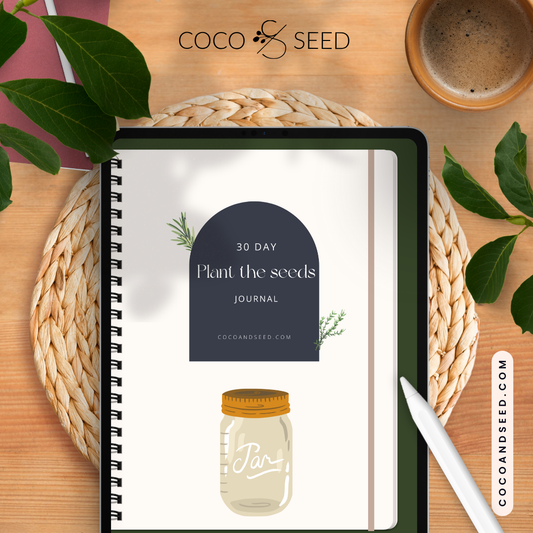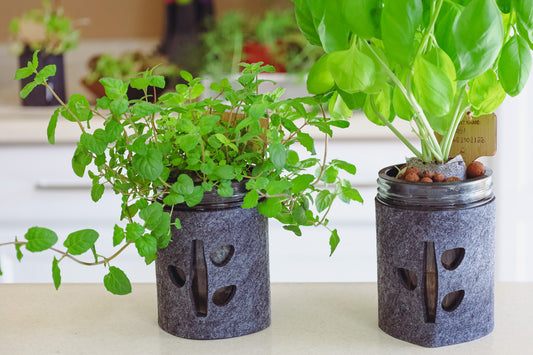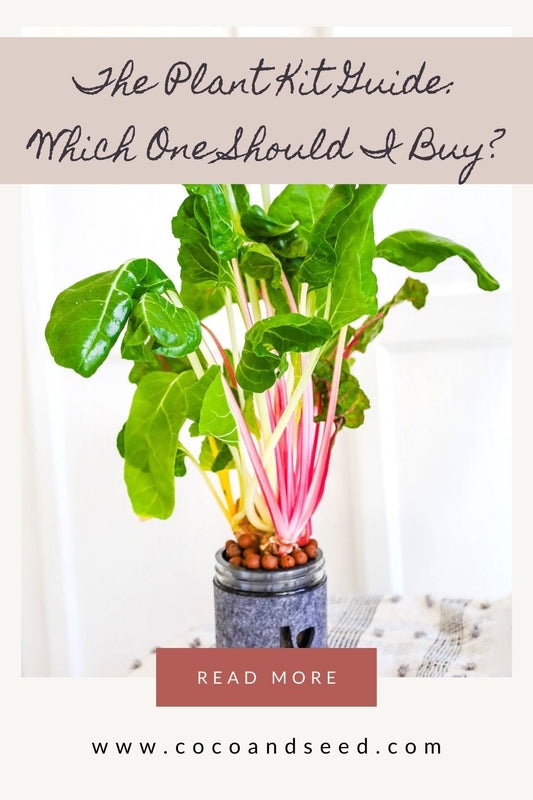
Why Mason Jars Make Great Self Watering Planters
Share
In the world of gardening and plant care, innovation often comes in unexpected forms. Mason jars, those iconic glass containers that have been used for preserving jams, pickles, and more, have found a new purpose as self-watering planters for edible plants.
This eco-friendly and creative gardening solution not only adds a touch of rustic charm to your space but also makes growing edible plants easier than ever. In this blog post, we will explore why mason jars make excellent self-watering planters for your favorite herbs, vegetables, and other favorite plants!

1. Repurposing with Style
One of the reasons mason jars are so popular as self-watering planters is their versatility and aesthetic appeal. Jars come in various sizes, shapes, and colors, allowing you to choose the perfect one to match your style or home decor. Their timeless design adds a rustic and charming element to your indoor or outdoor space, making your edible garden a decorative focal point. This lettuce kit on the kitchen counter makes creating a fresh salad for dinner or adding to wraps or burgers quick, easy, and as good as it gets!

2. Cost-Effective and Eco-Friendly
Mason jars are affordable and readily available, making them a budget-friendly choice for anyone looking to start a small garden. Using mason jars as planters is an eco-conscious choice, as it repurposes items that might otherwise go to waste. By upcycling these jars, you reduce the demand for new planters and contribute to a more sustainable lifestyle. They also have dual purpose so when you are done using them for one thing (like storing food in) you can use them to grow your own food.
3. Self-Watering Magic
The self-watering feature of mason jar planters is a game-changer for those who struggle with plant care. The concept is simple: the jar acts as a water reservoir, while the coconut coir and clay pebbles - or soil depending on the growing medium, and the plant sit above it. A wick, often made from cotton draws water up from the reservoir into the growing medium as needed. This ensures that your edible plants receive a consistent and controlled water supply, reducing the risk of overwatering or underwatering.

4. Ideal for Small Spaces
Mason jar planters are perfect for urban dwellers or anyone with limited gardening space. Their compact size makes them a practical choice for windowsills, countertops, or balcony gardens. You can grow a variety of herbs, such as basil, cilantro, and sage, or even small vegetables like cherry tomatoes or lettuce, all within the confines of a mason jar.

5. Educational and Fun
If you have children or are passionate about teaching others about gardening, mason jar planters offer a hands-on and engaging way to learn about plant growth and care. Watching seeds sprout and plants thrive in a clear glass jar can be a fascinating and educational experience for both kids and adults.
6. Easy Maintenance
Maintaining mason jar planters is hassle-free. You can easily monitor the water level, ensuring that your plants receive the right amount of moisture. The transparent glass also allows you to check the condition of the roots and soil, making it easier to identify any issues early on. Additionally, mason jars are easy to clean and sanitize, promoting healthier plant growth.

In the world of gardening, innovation knows no bounds, and mason jars have proven to be a delightful surprise as self-watering planters for edible plants. Their affordability, eco-friendliness, and charming aesthetics make them an excellent choice for novice and seasoned gardeners alike. So, why not embark on your own mason jar gardening adventure and enjoy the taste of homegrown herbs and vegetables, all while adding a touch of rustic beauty to your space? Get creative, have fun, and watch your edible garden thrive in these timeless glass containers.



